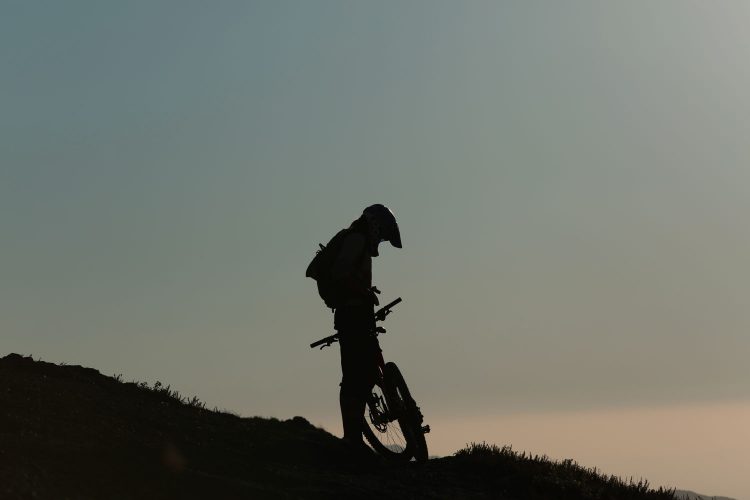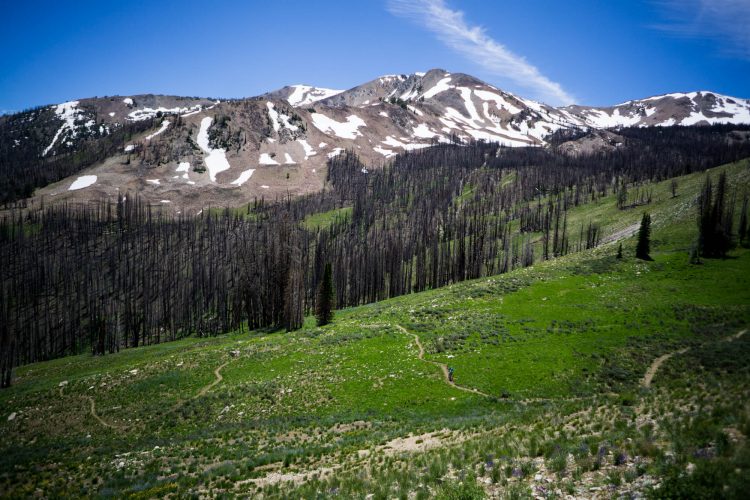You are tough enough. You’ve done good. You have nothing left to prove.

These words spontaneously popped into my head while I was finishing a training ride in Frisco last month. This was about two weeks after my concussion in Sun Valley and I had just pulled out of the Keystone Big Mountain Enduro. So, You are tough enough, you have nothing left to prove. It became like a mantra while I was cooling down on the bike path and before I knew it I was bawling my eyes out while dodging tourists on cruiser bikes. Awesome. As you can see, I’ve really got my shit together this year.
I don’t really know why those words hit me so hard, but I think it was a sort of sudden emotional release of everything I’ve been holding onto since things started going sour for me this year. Or maybe longer than that. It was like I suddenly realized how much pressure I’ve been putting on myself to be tough for the past three years, or maybe my entire life. I’ve been slowly working my way towards this conclusion for a few months now — I touched on it a little bit in this post when I was talking about how riding through my knee pain caused me a million and ten problems, but my crash in Sun Valley, as well as my mishap this past weekend in Steamboat, really drove the message home.
Mountain biking has made me tough. And that is, for the most part, a good thing. I think there are a lot of people out there who could benefit from the high tolerance for scrapes and bruises that mountain biking affords you. Case in point, I have raced with a torn hamstring, a MRSA infection, a sprained hand, food poisoning, numerous head colds and the usual bumps and bruises (ranging from minor to downright alarming). In 2014, I raced the day after I got seven stitches in my face and earlier this year I got up and finished a race even though I had zero idea wtf had just happened. Some of these things were minor inconveniences, and others were downright stupid. And that’s the problem — sometimes stupidity looks a lot like being tough. The line is blurry, especially in a mountain bike culture where we idolize ridiculous crashes and cheer people on for racing through injury.
The lesson I’ve been learning this year is that being tough, while admirable, does not make you fast. And also, and perhaps more importantly, I’m already tough enough. I can gut out long transition climbs, even the ones that seem impossible. I can make it down some pretty gnarly terrain when I’m exhausted. I can get up after a crash in a race run and nail the rest of my lines with my handlebars 15 degrees off center. I can buckle down and finish just about anything no matter how jacked up my body and bike may be. And that’s great and all, but while I may be tough enough, I’m still not fast enough. And I want to do more than finish races. I want to do well.
After crashing on the second stage of the Big Mountain Enduro in Steamboat this past weekend, I was furious. I honestly don’t think I’ve ever been so upset with myself over a mistake in a bike race. I just felt so dumb to have crashed on something that was entirely within my ability due to…I don’t know…being a millimeter off line, being a nanosecond off on my timing, my body position being a eensy-weensy bit unbalanced… or maybe just having the shittiest luck ever. It was really upsetting. And even though it wasn’t a high speed crash I managed to chuck my bike ten feet down an embankment into a creek and smash my arm into a boulder. I finished that stage, and the rest of the day, but I wasn’t entirely sure my arm wasn’t broken at that point. It swelled up massively, and while I could technically hold onto the bars, it sucked. I felt better the next morning — until I started riding, where every bump was excruciating. I had full range of my motion and some grip strength, so I knew nothing was broken, but I almost wished it was. On the first transition, I tried to give myself a pep talk. Like, you just have to finish, who cares if you’re last, you can ride through much worse pain than this — Just think about what you can learn from this, how tough this will make you.
And then it hit me — that same mantra that made me cry a month ago in Frisco. You’re already tough enough. You’ve done good. You have nothing left to prove. And I realized something — I already know I can finish the damn race. I already know that if I can physically ride my bike, I can finish just about anything. I already fucking know that. The only thing I can possibly learn in this situation is when to walk away.
So I raced the first stage of the day. And then I walked away. I’ve never DNFed a race before, not like that. (Technically, I was a DNF at Inca Avalanche in 2014 but I was vomiting uncontrollably and got carted off the course by the police escort vehicle, so there wasn’t much decision involved.) It was devastating. I felt like a failure. The hours after that decision might be the lowest of the low for my season, and fuck, that is saying something this year.
But it was quickly apparent that my decision was the only possible good one. I avoided injuring myself further and I was able to get the swelling down with some rest and a lot of ice. I haven’t tested it out on anything bumpy yet, but I think I’ll be able to ride for the Enduro Cup this weekend in Park City. And life goes on.
This season has forced me, brutally, harshly, to divorce my sense of accomplishment from race results. I’m riding completely differently than I was last year — I am fitter and faster. I don’t need race results to tell me that. I’m hitting jumps and features that are way bigger and gnarlier than I’ve ever hit before. I am looking at trails in an entirely different way, seeking out little opportunities to get air that I never would have seen before. I can actually hit corners and carry some speed.
And yeah, I’m still racing like shit. But racing isn’t everything.
I sat down last October and wrote down a list of goals — tasks, really, things I could control — to work on. I read these over this morning and I realized something — I’ve done them all. I’ve worked on everything I’ve said I was going to do. For the past ten months, I’ve poured every ounce of energy I had into being the best mountain biker I can be… training, strength work, representing my sponsors, working on skills, racing. I have done everything I possibly could. I didn’t give up on myself when I injured my knee in May. I didn’t give up after my concussion in June. And I’m not giving up now, either. The rest of my season could be a total disaster, but at least I will know that I tried, that I did everything I possibly could to make this work. I don’t need to prove that to anyone, because I know, and that’s all that matters right now. So, no matter how tired and frustrated and discouraged I am right now, I’m proud, too.

